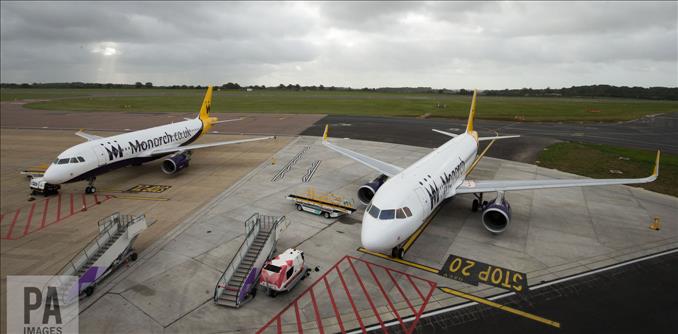
The collapse of Monarch Airlines is a victory for regulation
Intense competition, terrorism, and Brexit-related sterling changes have already surfaced . But after the anger and recriminations have calmed down, attention should turn to the correct behaviour of the agency charged with protecting consumer rights. In this case .
The CAA's job is 'consumers have choice, value for money, are protected and treated fairly when they fly'. To this end, it has made 22 prosecutions against various operators under its Regulatory Enforcement Policy .
It now falls to the CAA to charter flights to bring Monarch's customers home and manage the 300,000 future bookings, which the airline sold before going into administration. Within 48 hours, more than 23,000 Monarch customers had been flown home to the UK .
Turbulent timesMonarch regularly required injections of cash, but its most recent troubles started in 2014 with losses of £210m. This triggered a major restructuring which included new owners and new management. A shift was also made from offering more high-end long-haul charter flights that formed part of package holidays to scheduled low-cost flights. And fleet renewal was a core component of the transformation too – a shift to more fuel-efficient planes that could reduce the cost per seat.
The results of this restructuring were impressive. The company recorded its best results in 2015 for more than ten years – a pre-tax profit of £26m, .
Events outside of the airline's control, however, quickly put the company back into the red. Brexit-induced currency fluctuations were costly. As Monarch's chief executive, Andrew Swaffield, : 'We take nearly all of our revenue in pounds and a lot of our costs go out in dollars and euros … so we get no revenue benefit from a decline in the pound but we get a big cost increase.'
Terrorist attacks in Egypt and Turkey also heightened competition between Monarch and its competitors to the more traditional destinations of Spain and Portugal. This led to more intense price competition. Monarch lost out because it was more dependent on the UK market and its aircraft .
By the end of summer 2016, rumours abounded about poor financial health. Monarch but the CAA was so concerned that it setting up a shadow airline in case Monarch folded. Planes were chartered and sent to Mediterranean airports to mimic Monarch's schedule. Ultimately, they were not needed as Monarch's majority owner came up with the £165m necessary to keep it afloat. But it was a precursor of things to come and demonstrated the CAA's awareness and ability to take action.
The increased competition in the European airline industry this year has been . But the heavy losses reported in August by the Monarch Group reflected .
Putting consumers firstDespite calls from its unions for financial help from the UK government, no investors were forthcoming. Monarch failed to meet the financial standards required to renew its Air Travel Organisers' Licence (Atol), despite being granted a 24-hour extension by the CAA from midnight on Saturday September 30 until midnight on Sunday October 1. KPMG were then called in as liquidators at 4am on October 2 (when no aircraft were in the air).
By demonstrating that it was not prepared to accept poor compliance, the CAA explicitly signalled to other airlines that consumers' rights came first. Had Monarch been allowed to continue trading, there was a very high likelihood that more of the 300,000 booked passengers would have become embroiled in the collapse, customers would continue to buy flights and holidays that had little prospect of happening, and suppliers would continue to provide services that may never be paid for. Kicking the can down the road would have led to far more customers losing out and potentially more job losses.
This was the second time in a few days that the CAA stepped in to protect the consumer. On September 29, it Ryanair to tell passengers that had been disrupted by cancelled flights how it would provide them with alternatives. By contrast, the Irish regulator for not taking the same kind of enforcement action against Ryanair.
With light-touch regulation blamed by many , the UK government reviewed and executed a aimed at both increasing consumer protection and reducing the burden imposed on industry. This applied to aviation, as well as banking.
While the customers hit by the demise of Monarch Airlines may well feel aggrieved at the disruption to their plans, if the CAA did not adhere as strictly to its mandate, many more of the carried by UK airlines might go on to suffer.

Legal Disclaimer:
MENAFN provides the
information “as is” without warranty of any kind. We do not accept
any responsibility or liability for the accuracy, content, images,
videos, licenses, completeness, legality, or reliability of the information
contained in this article. If you have any complaints or copyright
issues related to this article, kindly contact the provider above.


















Comments
No comment